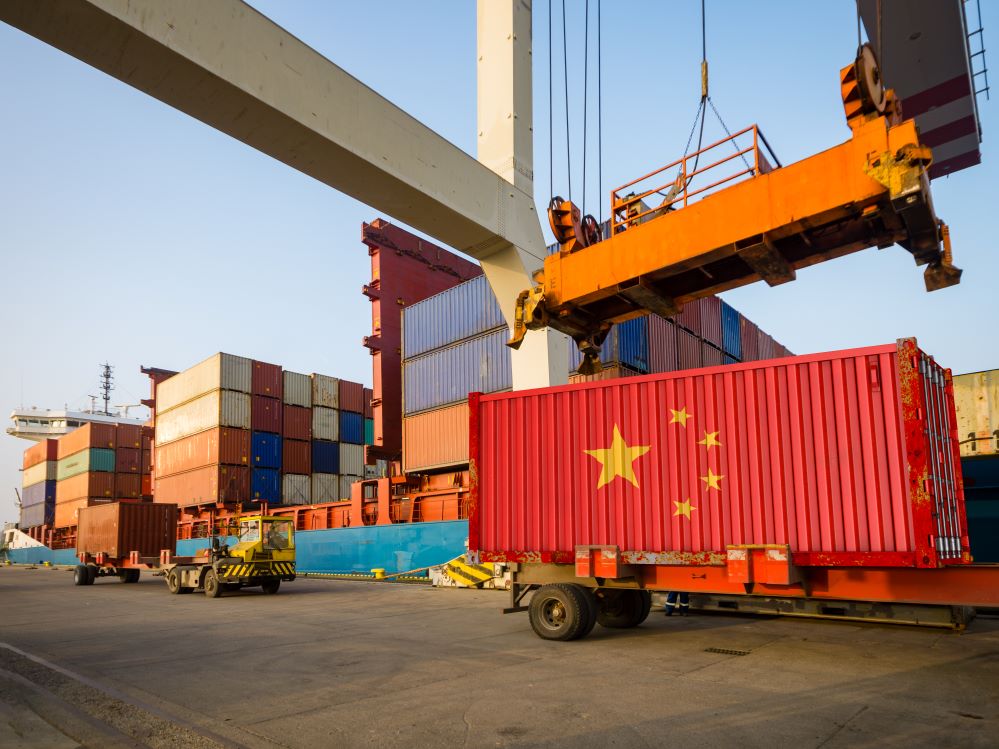
Covid-19 restrictions imposed in Shanghai are threatening to disrupt international supply chains and stall the global economic recovery just as countries are opening up after the pandemic.
Analysts are warning a continuing lockdown in the city of 25 million, which handled 20% of China’s freight traffic in 2021, will have severe implications for the rest of the world.
Shanghai and the surrounding regions are among China’s main manufacturing hubs with the city’s port crucial to receiving imported components and exporting finished goods, ranging from medicines to electric vehicles.
As previously covered in the IOE&IT Daily Update, Shanghai started a phased lockdown in late March, which became a full lockdown last week.
Delays and price rises
Aljazeera reports a continuing decline of the Shanghai Containerized Freight Index signalling a drop in Shanghai’s exports, said Bruce Pang, the head of macro and strategy research at Hong Kong-based China Renaissance Securities.
“China’s worst COVID outbreak may lead to delays and higher prices, which could stall recovery and further add to global inflation,” he said.
Although live in workers and healthy inventory stocks are mitigating the effects on industry to some extent, Julian Evans-Pritchard, senior China economist at Capital Economics, warned: “If the closures drag on for too long then it would lead to product shortages both in and outside of China.”
Freight traffic at Shanghai port has plunged during the lockdown while congestion of vessels waiting outside the port is growing, a report by BBVA said.
BBVA researchers estimate that there is a 25% likelihood that Shanghai will fail to end the current wave by June.
‘Worse than 2020’
Richard Martin, managing director at IMA Asia told CNBC that a hold up on components from China meant “we’re about to see a logistics snarl that’ll dwarf anything in 2020 or 2021”.
China has adopted a ‘zero-Covid’ approach to the pandemic, and Martin said this was unlikely to end.
“You cannot see President Xi Jinping backing off [China’s] zero-Covid policy, it’s almost become a hallmark of the administration,” he said.
More lockdowns?
According to the Loadstar, other ports could introduce restrictions soon as it reports Guangzhou has become the latest port city to undergo mass Covid-testing, which is often a precursor to tougher measures.
City-wide testing began on Saturday evening, along with travel restrictions.
Global growth downgrade
The warnings on the effect of Chinese lockdowns comes as the World Trade Organization (WTO) revised down its forecast for global trade growth this year to 3% from 4.7% because of the impact of the Russia-Ukraine war, reports Reuters.
It said the conflict, now in its seventh week, had damaged the world economy as the coronavirus pandemic and Chinese lockdowns hampered the recovery.
WTO warning
WTO director-general Ngozi Okonjo-Iweala repeated past warnings that poorer countries would be hardest hit by food shortages, reports the FT.
“Smaller supplies and higher prices for food mean that the world’s poor could be forced to do without. This must not be allowed to happen. This is not the time to turn inward,” she said.
She called for humanitarian corridors to allow grain to leave Ukraine, for farmers to be able to work, and for countries with grain stocks to sell them internationally to reduce prices.
The WTO forecasts that exports export growth is expected to more than halve in Europe compared with last year, while North America and Middle East oil exporting countries are set to see above average growth rates.
Asia is forecast to see export growth slowing to 2% from 14% in 2021. The CIS region that includes Russia is forecast to see a big drop in imports and GDP this year, but exports should grow by 4.9% due to oil and gas sales.



